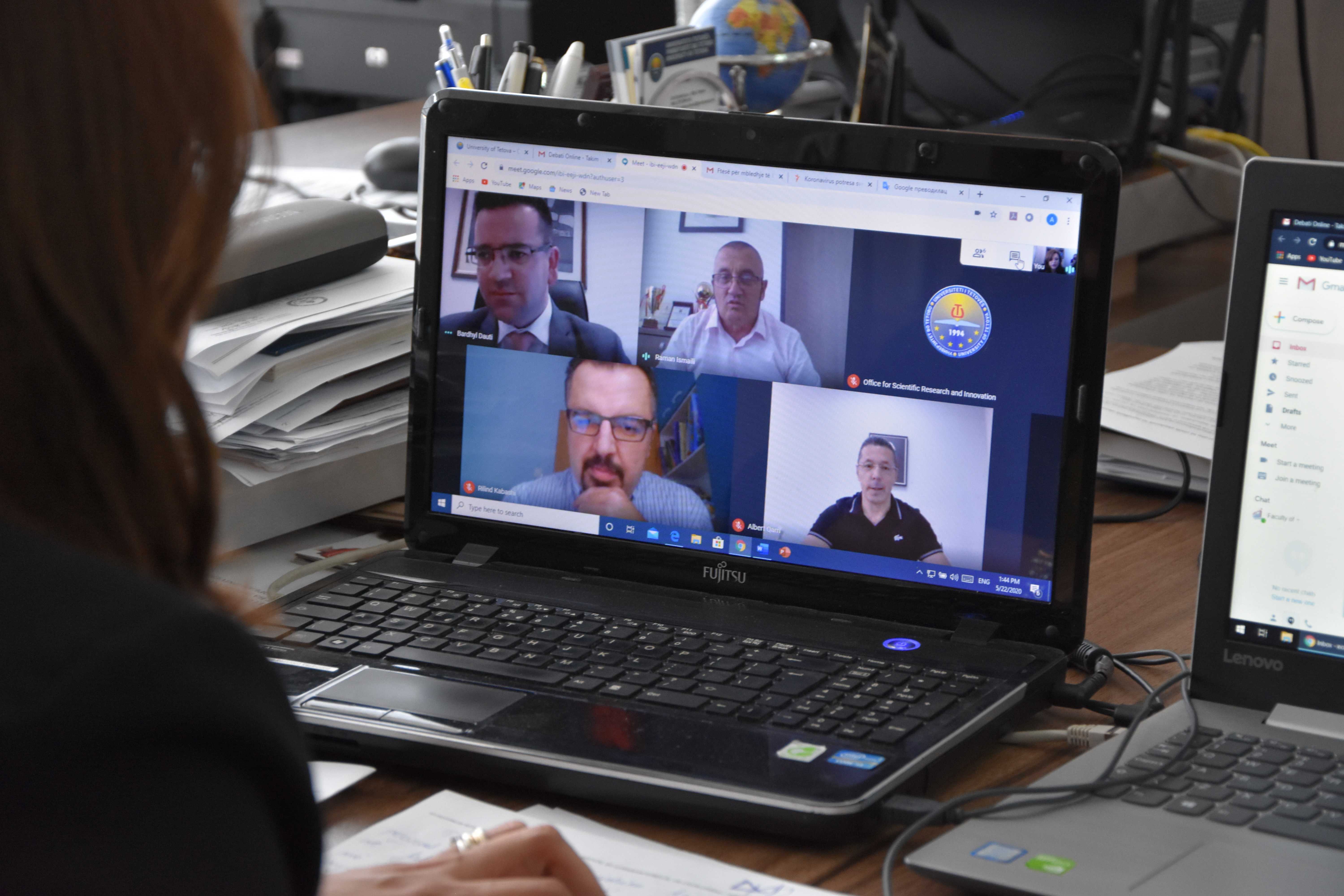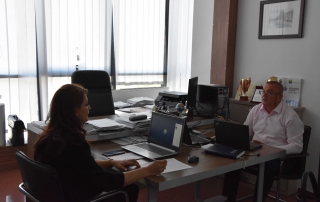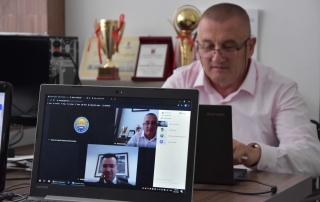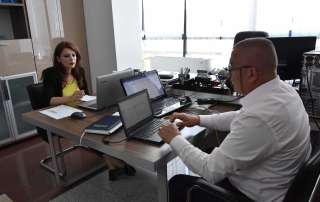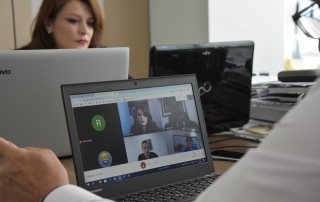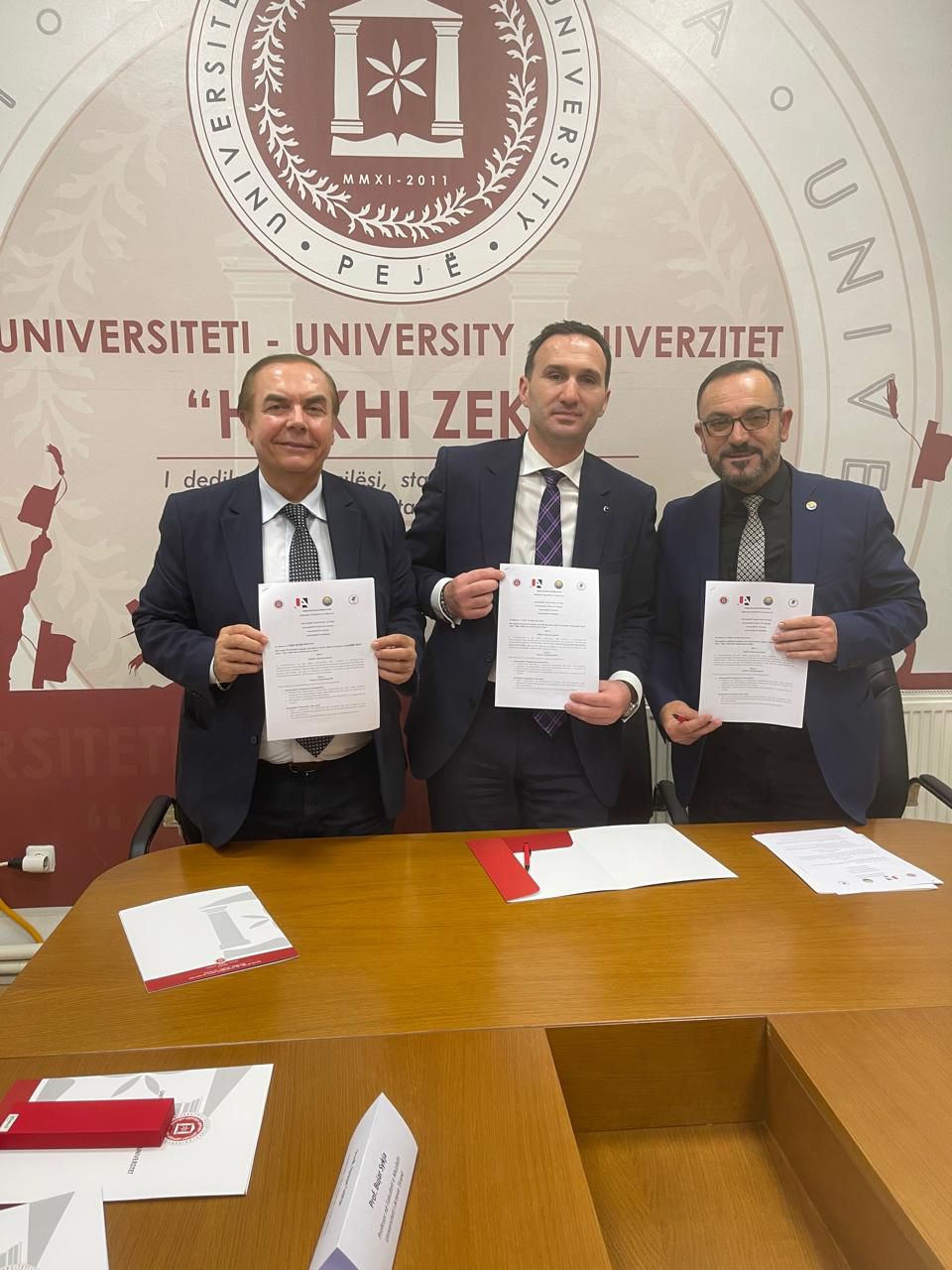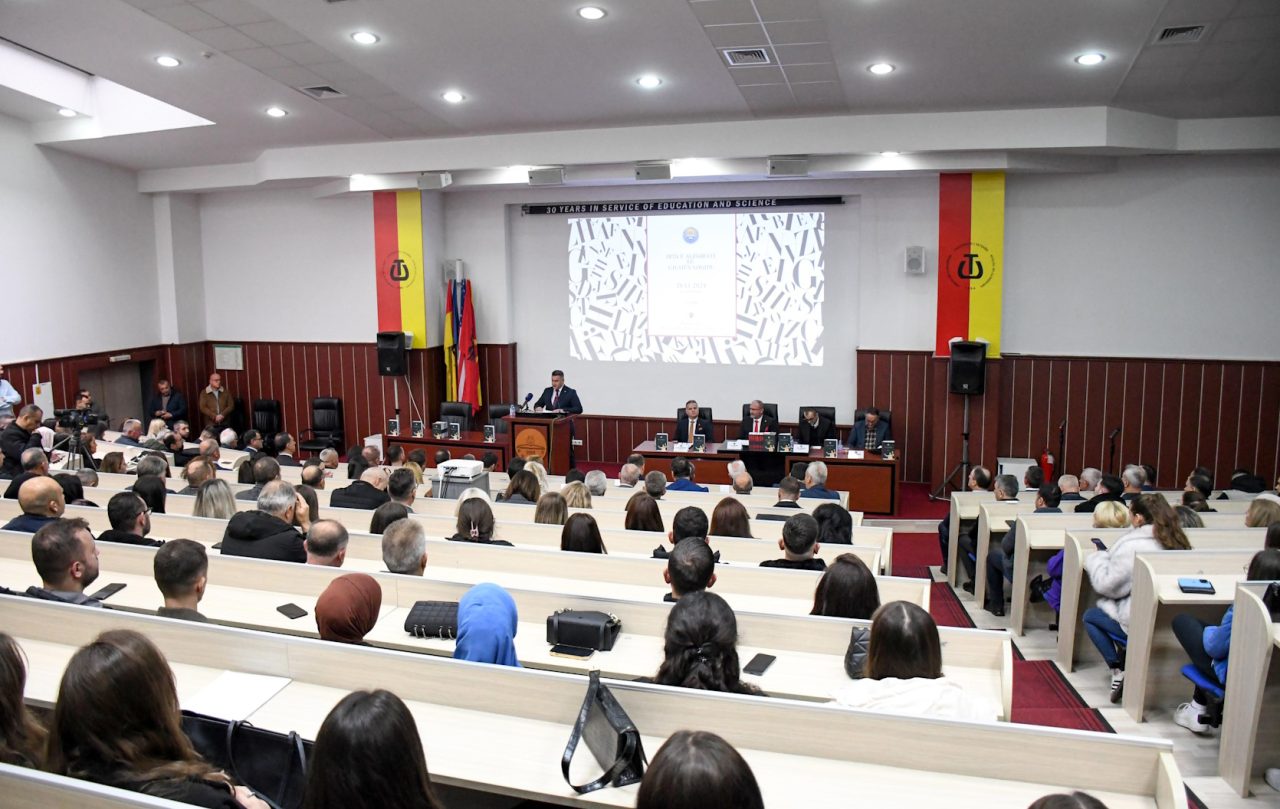The University of Tetova, respectively the Faculty of Economics (on 22.05.2020), organized an online debate on the topic: “Impact of the pandemic on national economies”. The pandemic has hit all walks of life, nationally and globally, but has impacted economy the most. In this debate, participants shared their thoughts and impressions about the impact of the pandemic on the economy sector.
In this activity participated: Dean of the Faculty of Economics – Prof. Dr. Raman Ismaili, Doc. Dr. Aida Yzeiri Baftijari – Vice Dean for Science at the Faculty of Economics, Rilind Kabashi – Central Bank of RNM, Doc. Dr. Bardhyl Dauti – Minister of Foreign Investments in RNM, Nebi Hoxha – President of ECNWM, Albert Qarri – professor at the Faculty of Economics of the University “Ismail Qemali” – Vlorë and Arben Oda – tourism expert.
Dean of the Faculty of Economics, Prof. Dr. Raman Ismaili, on behalf of the staff of the Faculty of Economics and the leadership of the University of Tetova, greeted the guests and said that this debate will achieve its goals through the analysis of determinants that have hindered the functioning of local economies.
“The negative effects of the global pandemic have involved many dimensions, which are reflected in national economies. Considering that the economies of the countries in the region are mainly small and open economies, it is understandable that the oscillations of economic developments will be affected by both the decline in domestic economic activities and the reflections of the global economy in general. The pandemic has so far shown a negative impact on the economy of North Macedonia. What burdens the country’s economy is the decline in demand and supply, which has resulted in declining economic activity and declining overall consumption in the country. I believe that this activity will achieve its goals, through the analysis of determinants that have hampered the functioning of local economies, especially in various economic sectors and will identify the need for scientific and professional contribution to the recovery of local economies”, said the Dean of the Faculty of Economics, Prof. Dr. Raman Ismaili.
Minister of Foreign Investments in RNM, Doc. Dr. Bardhyl Dauti, said: “We have a pandemic, which has a current lifespan and continues to this day, its deadline is unknown and the impact on the economy has been extremely high, in the negative direction. It first affected China, 180 other countries and then Europe, and in this regard, all this pandemic had a negative effect on global consumption and production, putting aggregate supply and demand at a global level, ie by favoring an almost total recession in the direction of the labor market, where we had high unemployment rate, either in the European Union or in other countries”, said among others, Doc. Dr. Bardhyl Dauti, Minister of Foreign Investments in RNM.
Albert Qarri – full professor at the Faculty of Economics of the University “Ismail Qemali” of Vlora was also invited to this debate, who shared his experience about the impact of the pandemic on national economies. “Referring to my direction in the field of statistics and econometrics, there is a real lack of proper studies on the impact that this pandemic situation will have, because the period itself is so short that the information is not statistically valid to make accurate predictions for the future. We judge and evaluate on the basis of those real indicators in this situation, referring to the theory and taking into account all the factors that will affect the economy of these countries.
Of course the corona virus is the cause of this worldwide situation, a global crisis and I would call it, or consider it a global humanitarian challenge associated with a challenge for the economies of countries around the world. If doctors or medical specialists fight heroically against the virus, various governments and industries are working to understand and address the challenge posed by the pandemic”, said Professor Albert Qarri from the Republic of Albania.
This debate ended with the presentation of the opinions of other participants, such as: Rilind Kabashi – from the Central Bank of RMV, Nebi Hoxha – chairman of ECNWM and Arben Oda – tourism expert, who expressed their views and views of relevant institutions.

